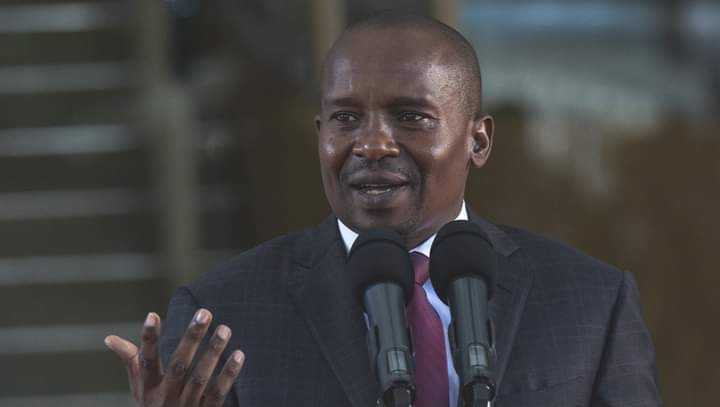By Adeyemi Adekunle
Kenyan President William Ruto’s recent selection of Interior Minister Kithure Kindiki as his new deputy has been temporarily suspended by the High Court in Nairobi.
This development comes in the wake of an unprecedented political shake-up following the impeachment of Ruto’s former deputy, Rigathi Gachagua.
The court’s intervention has set the stage for a high-stakes legal debate scheduled for October 24, raising questions about the legitimacy of political maneuvers in a country already grappling with political tensions.
President Ruto made the announcement of Kindiki’s appointment on Friday, signaling his intent to stabilize his administration following the fallout from Gachagua’s impeachment. The Senate had previously voted overwhelmingly to uphold impeachment charges against Gachagua, a move that marked a historic first in Kenya’s political terrain.
Gachagua was accused of gross violations of the constitution and inciting ethnic hatred—charges he vehemently denied, labeling them as a politically charged witch hunt orchestrated by his adversaries.
Lawmakers had shown overwhelming support for Kindiki’s nomination, approving the appointment just hours before the High Court’s suspension order was issued.
The swift passage of Kindiki’s nomination was indicative of Ruto’s push to consolidate power within a government that is still navigating the aftermath of the previous administration’s ousting.
However, the high court’s decision introduces a significant pause in this political trajectory, as judges will now deliberate on the legitimacy of these developments in light of Gachagua’s impeachment.
Legal experts are keenly watching the unfolding events, as the outcome of the court case could either validate or undermine the current administration’s efforts to assert control.
The constitutionality of Gachagua’s impeachment has become a hot topic of discussion, with many viewing it as a litmus test for the independence of the judiciary in addressing political conflicts in Kenya.
Critics of the Ruto administration have raised concerns about the implications of a politically motivated impeachment process. Accusations of ethnic favoritism and political rivalry have marred public perception of the administration’s actions, leading to fears of an increasingly polarized political climate.
Gachagua’s subsequent ousting, combined with the suspension of Kindiki’s appointment, has prompted speculation about potential shifts in political alliances and a possible recalibration of power dynamics within the ruling party.
As the judiciary prepares to hear arguments next week, both supporters and opponents of the current administration are bracing for what could be a pivotal moment in Kenya’s political arena. Legal analysts speculate that the court’s ruling could have lasting ramifications, not just for Kindiki or Gachagua, but for President Ruto’s broader governance strategies and his ability to navigate contentious political waters.
In the aftermath of this political saga, public sentiment remains divided. Many Kenyans express frustration with the persistent political turbulence, yearning for stability and effective governance. Advocacy groups have voiced the need for transparency and accountability in the impeachment process, emphasizing that political actions should not undermine the democratic ideals enshrined in the constitution.
The upcoming court hearings are drawing attention nationwide, as citizens and political analysts tune in to witness the judiciary’s role in resolving this high-profile conflict. The outcome may not only determine Kindiki’s fate as deputy president but could also serve as a critical reflection of the Kenyan political system’s resilience amid challenges.
As October 24 approaches, all eyes will be on the bench of judges assigned to this case. The resolution could either pave the way for Kindiki’s ascension to the deputy presidency or complicate the already tumultuous political landscape in Kenya.




